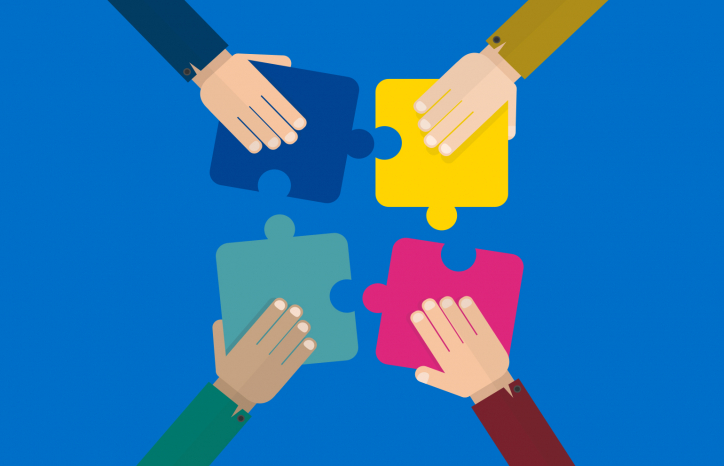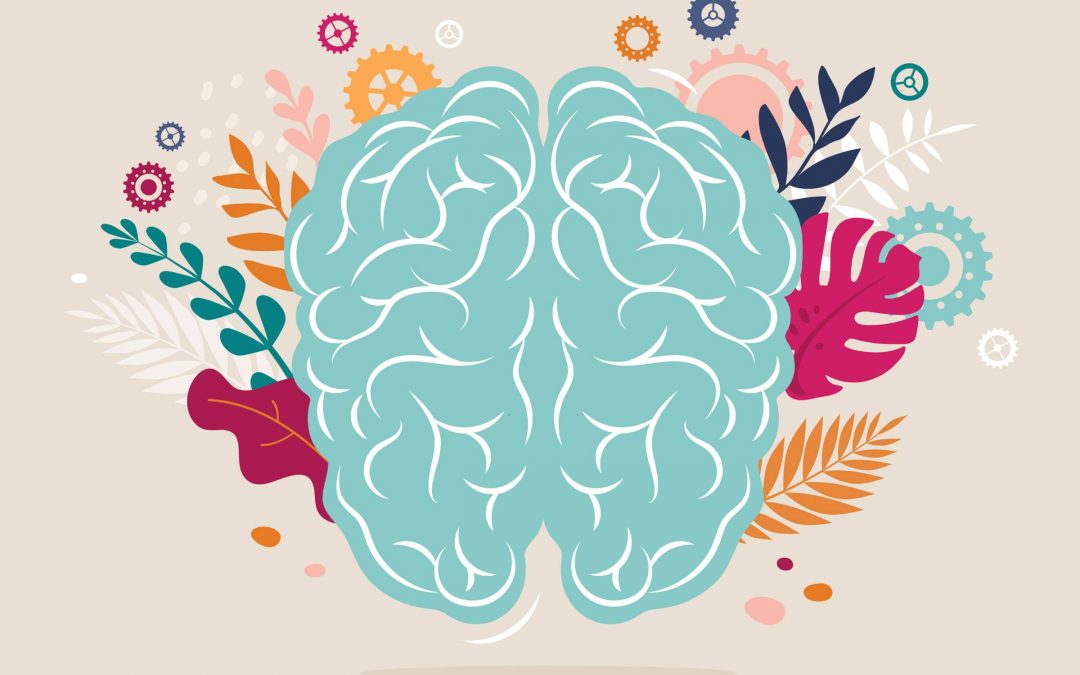Menschen flüchten über das Mittelmeer, auch wenn die ganze Welt mit Covid-19 beschäftigt ist. Die Seenotrettung kann sich daher keine Pause leisten. Carla Moritz berichtet über die Corona-bedingten Veränderungen im Mittelmeerraum.
Blockaden der Rettungsschiffe, fehlende Landeerlaubnis, keine staatliche Unterstützung: Die Situation für Flüchtende und zivile Seenotretter*innen war schon vor der Corona-Krise erschwert. Durch die Auswirkungen der Pandemie hat sich die Lage weiter verschärft. „Die Corona-Krise hat unsere Arbeit extrem eingeschränkt“, sagt Mattea Weihe, Pressesprecherin der gemeinnützigen Initiative Sea-Watch e.V. In einem Video-Gespräch erzählt sie von den Corona-bedingten Veränderungen, die die zivile Seenotrettung seit März erlebt.
Als Pressesprecherin von Sea-Watch arbeitet Mattea Weihe erst seit kurzem. Zuvor war sie ab 2017 als Teil der Crew bei der Sea-Watch an Board. Aufgrund ihrer Arabisch-Sprachkenntnisse war sie dort als „Cultural Mediator“ die erste Ansprechperson für die Geretteten.
Der durch Spenden finanzierte Verein Sea-Watch e.V. gründete sich 2015, um Flüchtende in Seenot im Mittelmeer zu retten. Ziel des Vereins: Sich selbst abschaffen, denn eigentlich sei die Seenotrettung nicht Aufgabe der Zivilgesellschaft, sagt Weihe. Sea-Watch fordert, dass die Europäische Union für staatliche Seenotrettung und sichere, legale Einreisewege sorgt. Bis dies der Fall ist, sehen sich die Mitglieder des Vereins in der Pflicht, dafür zu sorgen, dass kein Mensch im Mittelmeer sterben muss. Neben Forderungen an die Politik tun sie dies durch den Einsatz zweier Rettungsschiffe im Mittelmeer. Während die Crew in den Anfangsjahren hauptsächlich aus politisch motivierten Aktivist*innen bestand, stechen die Rettungsschiffe heute mit für die Schifffahrt ausgebildeten Freiwilligen und kulturellen Vermittler*innen in See. Dort halten sie Ausschau nach in Seenot geratenen Booten, retten die Passagiere und bringen sie an einen sicheren Hafen. Seit Beginn der Pandemie ist diese Aufgabe durch einige Faktoren erschwert.
Vorbereitung der Einsätze war erst ab Mai wieder möglich
Sea-Watch selbst bezeichnet den Zeitraum zwischen März und Anfang Juni aufgrund logistischer Schwierigkeiten und geschlossener Grenzen als „Zwangspause“ für die Seenotrettung. Mattea Weihe erzählt von den Problemen, die der Verein in dieser Zeit hatte: „Unsere Schiffsoperationen haben sich extrem verzögert: Wir konnten nicht auslaufen, weil bestimmte Arbeiten in den Werften nicht gemacht werden konnten.“ Außerdem habe die Crew wegen der Reisebeschränkungen und der Einschränkung des Flugverkehrs nicht rechtzeitig da sein können.
Erst im Mai sei die Vorbereitung von Einsätzen wieder möglich gewesen. Der Verein hat ein Hygiene-Konzept entwickelt, um die Crew und die Geretteten vor einer möglichen Covid-19-Ansteckung zu schützen: Vor und nach Einsätzen begeben sich die Crewmitglieder jeweils zwei Wochen in Kleingruppen in Quarantäne. Außerdem arbeiten sie komplett in Schutzanzügen. „Das hat unsere Rettungsaktionen extrem anstrengend gemacht und ist eine große Herausforderung“ so Weihe. An Bord werden die Geretteten sofort mit Mund-Nasen-Schutz ausgestattet. Alle sollen auf eine regelmäßige Desinfektion der Hände und Geräte achten. „Wir versuchen außerdem, dass der Abstand zwischen den Menschen eingehalten wird, um eine Ansteckung in jede Richtung zu vermeiden.“ Warum dies auf einem Schiff mit 200 Geretteten und der Crew schwierig ist, braucht sie nicht zu erklären.
Menschen fliehen trotz globaler Pandemie
Während Deutschland mit der Bewältigung von Covid-19 beschäftigt war, blieb kaum noch Zeit über die Flucht im Mittelmeerraum zu berichten. Bei vielen folgte der Trugschluss: Die Pandemie habe nicht nur unsere Reisen und tägliches Leben zeitweise pausiert, sondern auch für weniger flüchtende Menschen gesorgt.
Doch Weihe schildert das Gegenteil: „Wenn Menschen ihr Land auf Grund von Krieg, Folter oder anderer Schwierigkeiten verlassen müssen, wird sie auch keine Pandemie davon abhalten. Wir sehen von den Zahlen der flüchtenden Menschen her überhaupt keine Veränderung.“
Diesen Eindruck bestätigen auch die Zahlen der Europäischen Agentur für die Grenz- und Küstenwache Frontex. Laut Medienberichten kam es zwar im April zu einem starken Rückgang bei der Zahl der flüchtenden Menschen, im Mai seien aber wieder mehr Menschen über das Mittelmeer geflohen.
Corona-Pandemie als europäische „Über-Ausrede“
Doch während sich die Zahlen nicht verändert haben, habe die zivile Seenotrettung mittlerweile noch mehr Probleme bei der Erteilung von Landeerlaubnissen als vor der Pandemie. „Die europäische Politik nutzt die Pandemie massiv als Ausrede, Menschenrechte zu verletzen“ sagt Weihe.
Laut dem Deutschen Institut für Menschenrechte müssen folgende Rechte eingehalten werden, auch während der Corona-Pandemie:
- Rettung aus Seenot: „Alle Schiffe, die im Mittelmeer unterwegs sind müssen Schutzbedürftige in Seenot aufnehmen und an einen sicheren Ort bringen. Kein Schiff darf dabei behindert werden.
- Aufnahme in EU: Schiffe unter dem Kommando der EU und ihrer Mitgliedstaaten dürfen Schutzsuchende nicht in Drittstaaten, zum Beispiel Libyen, Marokko oder Tunesien, zurückbringen.
- Schiffe von Drittstaaten z.B. lybische Küstenwache: Schiffe von Drittstaaten müssen Schutzsuchende an einen sicheren Ort bringen. Gerettete dürfen nicht in geschlossene Lager in Libyen gebracht werden. […]
- Übergabe von Geretteten: Werden Kapitäne angewiesen, aus Seenot geborgene Menschen an die libysche Küstenwache zu übergeben oder Menschen auf See von der libyschen Küstenwache abgedrängt und zurück nach Libyen gebracht, ist das menschen- und seerechtswidrig.“
Während die zivile Seenotrettung pausieren musste, war vor allem die libysche Küstenwache im Mittelmeer aktiv. Laut dem Deutschen Institut für Menschenrechte bringt diese Gerettete oft in geschlossene Lager.
Laut Weihe werden die Menschen- und Seerechte schon länger von den Mitgliedsländern der Europäischen Union ignoriert. Dabei habe man in der Corona-Krise nun eine „Über-Ausrede“ gefunden, „damit kein Mensch, der nicht aus Europa kommt, einen Fuß auf den Boden dieses Kontinents setzt“. Die Pandemie werde genutzt, um das Recht auf Flucht zu verwehren. „In Griechenland durften Menschen wegen der Pandemie nicht an Land gehen, und es wurde erwartet, dass die Türkei sie zurücknimmt“, so Weihe.
Besonders schwierig sei die Kommunikation zwischen Seenotrettenden und zuständigen Rettungsleitstellen auf Malta: „Das Land macht keine Anstalten noch in der Seenotrettung aktiv zu sein und lässt Menschen wochenlang auf kleinen Schiffen ausharren.“ Ein weiteres Problem: Auf der italienischen Insel Sizilien hatte der Regionalpräsident ein Dekret veröffentlicht, dass eine Schließung aller Aufnahmezentren und die Aufnahme von weiteren Migrant*innen verbot. Schlussendlich blieb das Dekret ohne Auswirkungen, da die Entscheidung nicht in die Verantwortung der Region ist. Dennoch: die Begründung für das angekündigte Verbot war die Corona-Krise.
Eine neue Tendenz sei es, geflüchtete Menschen auf sogenannten Quarantäne-Fähren unterzubringen, erklärt Weihe. Auch die Schiffe der Sea-Watch übergeben ihre Geretteten nun an die umfunktionierten Verkehrsmittel. Mattea Weihe sieht dies kritisch: „Ob es menschlich ist, Menschen auf Fähren zu halten, darüber kann man streiten“.
Der Pressesprecher des Bundesinnenministeriums Steve Alter erklärte Anfang April, man sei sich der schwierigen Situation der EU-Mitgliedstaaten am Mittelmeer durchaus bewusst: „Wir haben […] die Information erhalten, dass es vor dem Hintergrund der aktuellen Situation um Corona nicht möglich sein wird, Rettungsschiffe anlanden zu lassen und eine Ausschiffung zu ermöglichen.“ Mit dem Anspruch „verantwortlich zu handeln“ habe man daher Rettungsorganisationen unter deutscher Flagge wie z.B. Sea-Watch über dieses Problem informiert. Weitere Maßnahmen der Bundesregierung oder EU wurden nicht genannt.
Der Verein Sea-Watch wird laut Weihe auch trotz der Pandemie weitermachen. „Wir finden es richtig, dass Corona ernst genommen wird, aber es kann nicht sein, dass deswegen Menschen im Mittelmeer ertrinken müssen“. Wenn die europäischen Länder sich weigern, gerettete Flüchtende aufzunehmen, kann der Verein keinen neuen Einsatz vorbereiten.
Unser Gespräch fand drei Tage vor den Bränden im Flüchtlingslager Moria auf der griechischen Insel Lesbos statt, die Aufmerksamkeit für die Probleme Flüchtender an der europäischen Grenze erzeugten.
Carla Moritz







Nedavni komentarji